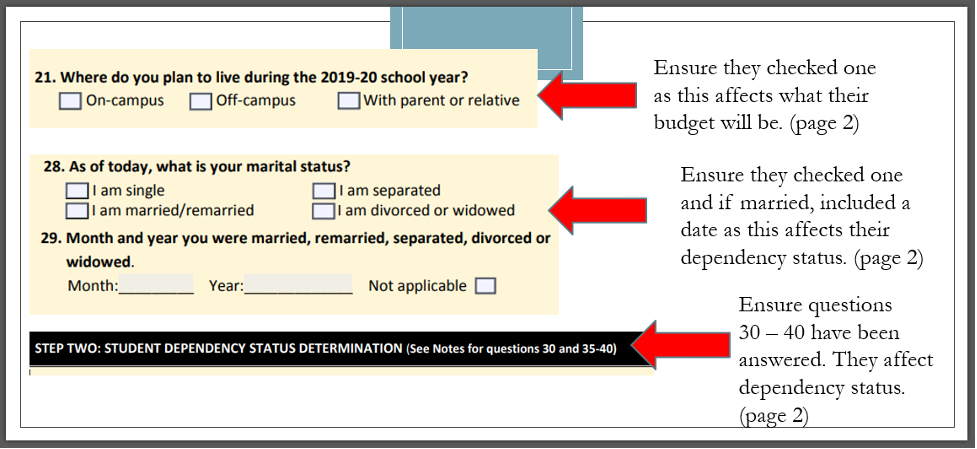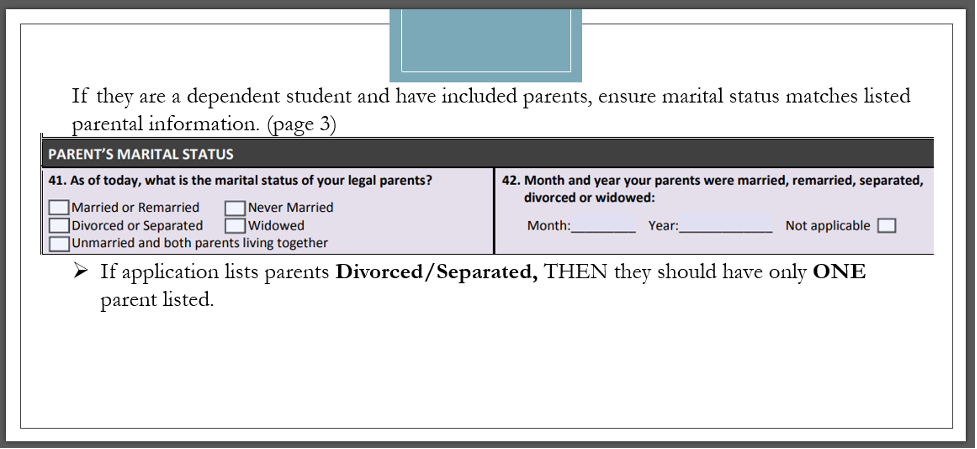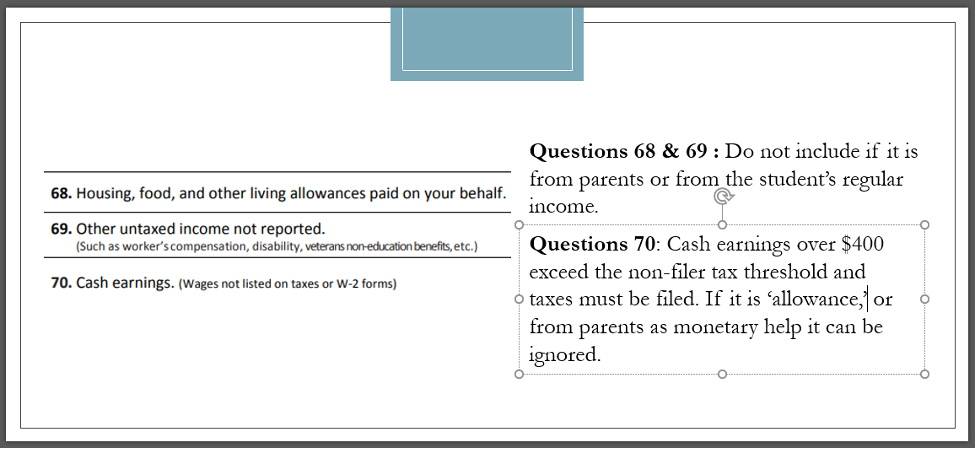Frequently Asked Questions
This site is currently under review. If you have questions, please contact the Monarch Center at monarchcenter@txstate.edu.
-
GENERAL INFORMATION
-
Who is an undocumented person?
Undocumented persons are immigrants who entered the United States without inspection or overstayed their visas & are present in the United States with or without their parents. They face unique legal uncertainties and limitations within the U.S. educational system.
-
Glossary of Immigration Terms
Asylee: A person who has been granted the relief of asylum in the United States due to fear of persecution in their native country for the same reasons as refugees. Immediately after obtaining asylum, asylees are authorized to work in the United States and one year later, an asylee can apply for lawful permanent resident (LPR) status. Like all other LPRs after five more years, the asylee can apply for U.S. citizenship.
Asylum seeker: A person seeking refuge in the country in which he or she currently resides due to persecution faced in his/her native country. People who apply for asylum at an airport or other point of entry into the United States are detained.
The difference between refugees and asylum seekers is that asylum seekers are physically present in the United States or at a U.S. border and are seeking permission to remain in the United States, while refugees are outside the United States and are seeking resettlement in the United States.
Alternatives to Detention (ATDs): Facing growing criticism from the public and the government, private prison companies have invested in “alternatives to detention,” a term advocates have long used to refer to community-based programs that ensure immigrants are released from detention to the community and provided with the support they need to best fight their immigration case.
Board of Immigration Appeals (BIA): The highest administrative body within the Department of Justice that interprets and applies immigration law. The BIA hears appeals of decisions made by Immigration Judges (IJs). These decisions are binding unless overturned by the Attorney General or a federal circuit court.
Citizenship and Immigration Services (CIS, or USCIS): The bureau within DHS that administers applications for immigration benefits such as visas, adjustment of status, and naturalization. The USCIS Asylum Officer Corps makes decisions on affirmative asylum claims.
Corrections Corporation of America (CCA)/CoreCivic: One of the private corrections contractors that work with the FBI, ICE, and the U.S. Marshal Service. CCA has over 60 facilities and incarcerates more than 80,000 people in immigration detention and in other forms of confinement. Similar contracts are given to GEO Group, Emerald Correctional Management, and Management & Training Corp, among others. Corrections Corporation of America (CCA) is the oldest prison corporation in the world. It rebranded itself as CORECIVIC in October 2015. It is a publicly traded company. Freedom for Immigrants was formerly named "CIVIC" and we have never had any connection or relationship with CCA/CORECIVIC. We encourage all advocates and news outlets to refer to this company as "CCA/CORECIVIC" to ensure that the company cannot dissocociate itself from its past misdeeds by sanitizing itself with a name change.
Department of Homeland Security (DHS): Charged with “protecting” the United States. In 2003, through the Department of Homeland Security Act, DHS absorbed most of the former Immigration and Naturalization Service (INS) and took on its duties.
DHS split immigration-related duties among three separate agencies: (CIS) - Citizenship and Immigration Services, (ICE) - Immigration and Customs Enforcement, and (CBP) - Customs and Border Protection.
Deportation/Removal: Expulsion of a noncitizen from the United States. People who can be deported include non-citizens (including lawful permanent residents) with criminal convictions; visa overstays; refugee/asylum seekers; and those who entered without inspection (for example, by crossing the border unlawfully). Once removed, a noncitizen faces legal bars for a time period that prevent his or her return or sometimes they are permanently barred.
Executive Office for Immigration Review (EOIR): The agency within the Department of Justice that administers all Immigration Courts, including those inside the detention centers, and the BIA. It is a separate agency from ICE, which is in the Department of Homeland Security. EOIR judges determine defensive asylum claims and other claims for relief from removal during removal proceedings.
Expedited Removal: A section of 1996 laws used to deport many non-citizens without a hearing before an Immigration Judge. Expedited removal can be imposed on people the government finds “inadmissible” at any border entry point. Under expedited removal, individuals can be removed on an order issued by an immigration officer. The U.S. Immigration and Naturalization Service (INS) began implementing the expedited removal provisions of the Illegal Immigration Reform and Immigrant Responsibility Act of 1996 (IIRIRA) in 1997.
Immigration and Customs Enforcement (ICE): The bureau within the U.S. Department of Homeland Security (DHS) that enforces immigration laws and conducts the apprehension, detention and deportation of immigrants. ICE used to be part of what was known previously as the INS or Immigration and Naturalization Service.
Intensive Supervision Assistance Program (ISAP) and the Electronic Monitoring Program (EMP): Alternative forms of detention that ensure close and frequent contact by ICE with someone granted supervised release. Those enrolled in these programs typically must make regular visits to an ICE officer or subcontractor and check in through telephone calls. Many people are also required to wear electronic ankle bracelets, and are subject to curfew and other reporting requirements.
These programs are frequently utilized for people who have final orders of removal but whom ICE cannot deport (for example, because of lack of travel documents, or a country’s refusal or inability to accept an immigrant).
Lawful Permanent Resident (LPR): An immigrant with a “green card” who has been lawfully admitted to the United States for permanent residence. An immigrant can become a permanent resident in several different ways. Most individuals are sponsored by a family member or employer in the United States. Other individuals may become LPRs through refugee or asylee status or other humanitarian programs.
LPRs have essentially the same rights and obligations as U.S. citizens with the exceptions of voting and holding certain public offices and civil service positions. However, LPRs can be detained or deported for certain offenses, including misdemeanors punishable by one or more years in jail. After five years (three years in certain circumstances), an LPR can apply for U.S. citizenship.
Non-immigrant: A person who has been lawfully admitted to the United States for a specific purpose (e.g. work or study) for a temporary stay that will end when its purpose has been accomplished and the visa expires.
Parolee: A non-citizen to whom the Attorney General has granted a temporary stay for humanitarian or public interest purposes and who can be detained at any time. Parolee status expires after one year (renewable at the U.S. government’s discretion), and most parolees are prohibited from applying for lawful permanent residency (LPR) “green card” or citizenship.
Prosecutorial Discretion: The authority of the Departments of Justice and Homeland Security to refrain from placing a potentially deportable person in deportation proceedings; suspend or even terminate a deportation proceeding; postpone a deportation; release someone from detention; or de-prioritize the enforcement of immigration laws against someone because it does not serve enforcement interests.
Refugees: People seeking protection and a safe place to live outside their country of origin who is unable or unwilling to return because of past persecution and/or a well-founded fear of persecution on account of their race, religion, nationality, political opinion, or membership in a particular social group. Each year, a certain number of refugees are selected by the U.S. State Department to undergo several security screenings and enter the United States through the Refugee Resettlement Program.
One year after arriving in the United States, a refugee can apply to become a lawful permanent resident (LPR), and after five more years, can apply for U.S. citizenship.
Voluntary Departure: DHS or an Immigration Court may, in its discretion, allow a person to depart from the U.S. at his or her own expense in lieu of removal. DHS and/or the Immigration Court will set a finite period, usually about 120 days, to depart the U.S. If the person fails to depart, they will be subject to fines and a 10 year period of ineligibility for other forms of relief. Immigrants with aggravated felonies are ineligible for voluntary departure.
A Few Further Notes on Terminology
“Illegal” or “Alien”: Freedom for Immigrants denounces the use of degrading terms, such as “alien” and “illegal (immigrant),” to describe undocumented or unauthorized immigrants because it casts them as inhuman outsiders who come to the United States with questionable motivations.
“Alien” is a term used in the Immigration and Nationality Act to refer to non-citizens, but it should be avoided unless used in a quote. The term “illegal immigrant” stereotypes undocumented persons who are in the United States and suggests that they have all committed crimes.
Under current U.S. immigration law, entering the United States without inspection or overstaying a visa is not a crime; it is a civil violation.
Although “undocumented immigrant” is not ideal nomenclature, we use it, “non-citizen” or “non-status immigrant” for lack of better terms.
“Detainee”: Likewise, when describing someone who is currently detained, we believe that “detained immigrant/person” or “person in immigration detention” are the best terms, insofar as the discussion is actually related to their detention.
"Migrant": The United Nations (UN) defines the term migrant as "any person who lives temporarily or permanently in a country where he or she was not born, and has acquired some significant social ties to this country."
The UN Special Rapporteur of the Commission on Human Rights has proposed that the following persons should be considered as migrants:
"(a) Persons who are outside the territory of the State of which their are nationals or citizens, are not subject to its legal protection and are in the territory of another State; (b) Persons who do not enjoy the general legal recognition of rights which is inherent in the granting by the host State of the status of refugee, naturalized person or of similar status; (c) Persons who do not enjoy either general legal protection of their fundamental rights by virtue of diplomatic agreements, visas or other agreements."
When referring to a "migrant worker," the definition significantly changes; the UN Convention on the Rights of Migrants defines a migrant worker as a
"person who is to be engaged, is engaged or has been engaged in a remunerated activity in a State of which he or she is not a national."
In other words, this definition indicates that a migrant worker does not refer to refugees, displaced or others forced or compelled to leave their homes.
"Immigrant": An "immigrant" is someone who has already come to live permanently in a country, as opposed to "emigrant," which refers to a person leaving their own country to settle permanently in another. In the United States, as is the case in most countries, an "immigrant" is someone who has been granted legal status to stay in a country. An "immigrant" can be considered a "non-immigrant," as defined above, if they have only been granted status to stay in the country for a limited time.
In the United States, the term "undocumented immigrant" refers to individuals present in the country without authorization, whereas Europe usually uses the term "unauthorized immigrant."
While both terms are better than "illegal," they have come to take on some negative connotations. Many advocates in Europe avoid the term "immigrant" altogether, as it implies migration in to "our here," whereas migrant is more neutral as to point of view.
-
Can DACA and immigrant students apply to Texas State University?
Yes, a Social Security number is NOT required on the application. Just leave the field blank and complete the rest of the application.
DACA/undocumented students can complete the US Application and should note the following instructions:
- Biographical Info Section, Question 6.c. – Answer "No," unless you have specifically submitted an I-485 application for permanent residency (DACA is an I-765).
- Biographical Info Section, Question 6.f. – Leave blank, or answer "None of the above." If ApplyTexas later says you must use the International Application, try switching to the other answer.
- Residency Info Section, Question "Of what state or country are you a resident?" Answer where you are currently living, not your country of citizenship.
If you are a DACA student (var. – have an H4/L2/etc. visa) you should complete the U.S. application and disregard that it says it is ONLY for U.S. citizens and Permanent Residents. In some cases, ApplyTexas may require you to use the International Application. If that happens, submit it instead. We will figure it out and correct it.
If you are classified as an in-state resident for tuition purposes, you may receive state financial aid by submitting a Texas Application for State Financial Aid (TASFA).
If you have questions about your residency status for tuition purposes, contact residency@txstate.edu.
-
Where can I find scholarly work on immigration?
We want to highlight established and emerging scholars in the field of immigration studies. We especially want to feature those doing the work on our campus. View our Research page (Coming Soon!) to learn about immigration history, policy, legislation, and sociological impacts through the lenses of various disciplines.
-
-
LEGAL INFORMATION
-
What is DACA?
The acronym “DACA” refers to the federal “Deferred Action for Childhood Arrivals” program, which was deployed by Executive Branch memorandum on June 15, 2012.
-
What’s the difference between DACA and the Dream Act or “Dreamers”?
DACA recipients refers to those individuals protected under President Obama’s Deferred Action for Childhood Arrivals (DACA). The term “DREAMer” refers to those who would be protected under the Development, Relief, and Education for Alien Minors Act (DREAM Act), a bill in Congress that has been proposed several times but never passed.
-
Is DACA a pathway to citizenship?
DACA does not confer legal status, nor does it offer a pathway to permanent residency or citizenship. Only certain undocumented individuals who have no significant criminal history and meet educational criteria are eligible for the program. DACA status provides temporary administrative relief from the possibility of deportation (two years subject to renewal). Various legal challenges to the DACA program are ongoing in the courts.
The U.S. Supreme Court announced on June 28, 2019, that it will grant the Trump administration’s request that it review the federal court cases challenging Trump’s termination of DACA. For now, the three U.S. district court orders allowing DACA recipients to submit renewal applications remain in effect, and U.S. Citizenship and Immigration Services (USCIS) is still accepting DACA renewal applications from anyone who has previously had DACA.
-
If the DACA program is ended, will DACA recipients be allowed to remain enrolled at Texas State?
Yes. Texas State admits all qualified students regardless of immigration status.
-
If the DACA program ends, will I still be eligible to pay in-state tuition rates to attend this university/college?
Yes. Texas law authorizes persons classified as Texas residents to pay in-state tuition. Texas Education Code Section 54.052 and 19 Texas Administrative Code §21.24 outlines specific ways of determining whether a student enrolling at a public institution of higher education is classified as a Texas resident. The Texas Higher Education Coordinating Board has a Frequently Asked Questions on “Eligibility for in-state tuition and state financial programs” on its website.
-
Does Texas State share student information with federal officials?
Texas State vigorously defends the privacy rights of students and will not release information about a student’s immigration status to anyone without a validly issued subpoena, court order or search warrant. The Federal Education Rights and Privacy Act (“FERPA”) prohibits colleges and universities from releasing information from students’ education records without consent, except under certain specified circumstances.
-
Where can I get legal assistance?
Attorney with Immigration Experience
Attorney for Students offers free legal counseling services to all currently enrolled Texas State University students. All student information is protected by attorney-client privilege and is treated confidentially by all personnel. The Attorney for Students office is available to answer any and all questions related to U.S. immigration laws and how they may affect you. Visit Attorney for Students for information on Immigration, Criminal, Consumer, Insurance, Renting, Employment, Environmental, Family, Federal, and Business Law; and Support for LGBTQIA+ Students, Student Veterans, and Students pursuing a legal career.
-
-
Transitioning to Grad School or the Workforce
-
How do I get started?
Immigrants Rising created a free resource available for download called Life After College: A Guide for Undocumented Students that explains the following:
- Graduate School Versus Professional School
- Deciding Which School to Attend
- Private Versus Public
- Application Process
- Paying for Graduate School and Professional School
- Types of Professional Schools
- Getting Internships
- Earning a Living
and much more!
-
Can I obtain healthcare or health insurance?
Health insurance opportunities and restrictions vary by state and city.
The National Immigration Law Center has created Health Care Coverage Maps.
-
What if I am asked to provide a driver's license?
The National Immigration Law Center has provided a list of State Laws Providing Access to Driver’s Licenses or Cards.
-
-
FINANCIAL AID
-
What are my options for financial aid if I don't have a social security number?
Consider submitting a Texas Application for State Financial Aid (TAFSA)
1. Do the TASFA as early as possible. It opens on October 1 every year and should be completed by January 15 for the best aid. It is still not too late to apply, but you will want to hurry.
2. Answer the questions exactly as they are asked. If it asks about something today, then answer it for today; don’t try to anticipate what might happen in the future (for example: you will be getting married later, but not yet…you are not married for the TASFA).
3. Answer all of the questions! All of them. If you don’t have an answer, then put N/A as a strategy.
4. At TXST, all you need to do is submit your TASFA application. If the Office of Financial Aid needs more information, they will contact you.
Pay attention to details!



For Loans, visit the Alternative Loans page for more information. Book an appointment with a TXST financial coach to help you decide what is the best loan option for you.
-
How can I get in-state tuition?
If you are not a resident of Texas, you can receive in-state tuition through House Bill 1403 if you fall under these qualifications:
- resided in Texas with a parent or guardian while attending high school in Texas
- graduated from a public or private high school or received a GED in Texas
- resided in Texas for the three years leading to graduation or receipt of a GED
- provided their institutions a signed affidavit indicating an intent to apply for permanent resident status as soon as able to do so
-
Where can I find a notary on campus?
Free notary services are provided to students at the offices of Attorney for Students 512.245.2370 and Dean of Students 512.245.2124. Always call first to make sure the notaries are available.
-
